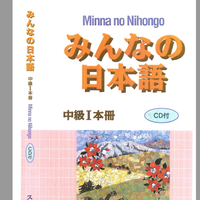科学 者 って どう 見える?
かがく|もの|||みえる
science|person|quotation particle|how|seen
наука||||
Wie sehen Sie Wissenschaftler?
What do scientists look like?
Comment voyez-vous les scientifiques ?
과학자는 어떻게 생겼을까?
Hoe zie jij wetenschappers?
Como é que vê os cientistas?
Какими вы видите ученых?
科学家长什么样?
科学家是什么样的?
科學家是什麼樣的?
子ども たち は 科学 者 に どんな イメージ を 持って いる のだろう か 。
こども|||かがく|もの|||いめーじ||もって|||
|||science||||||||I wonder|
діти||||||||||||
What kind of image do children have of scientists?
孩子们对科学家有什么样的印象?
15 歳 の 子供 たち を 対象 に 32 か国 で 行わ れた 国際 調査 で は 、 国 に よって かなり 違い が ある こと が 分かった 。
さい||こども|||たいしょう||かこく||おこなわ||こくさい|ちょうさ|||くに||||ちがい|||||わかった
years||children|||target||countries||conducted||international|survey|||country||by|considerably|difference|||||understood
|||||об'єкт||країн||||міжнародне|дослідження|||||||відмінності|||||
An international survey of 15-year-olds in 32 countries found significant differences among countries.
一项针对 32 个国家 15 岁青少年的国际调查发现,各国之间存在相当大的差异。
まず 、 子ども たち が 書いた 科学 者 の 絵 を 6 枚 紹介 しよう 。
|こども|||かいた|かがく|もの||え||まい|しょうかい|
first||||wrote|science|person||drawing||counter for flat objects|introduce|let's introduce
||||написали||||||аркушів|представити|
First, let me introduce six pictures of scientists written by children.
ナイジェリア と トリニダードトバゴ の 少女 は 女性 科学 者 を 書いた 。
ないじぇりあ||||しょうじょ||じょせい|かがく|もの||かいた
Nigeria||Trinidad and Tobago||girl||woman|scientist|||wrote
||||дівчина||||||
The girls in Nigeria and Trinidad and Tobago wrote female scientists.
どちら も 「 科学 者 は 人々 を 健康に する 」「 科学 者 は いつも 考え 、 アイディア を 持ち 、 輝いて いる 」 と その 素晴らし さ を 褒めて いる 。
||かがく|もの||ひとびと||けんこうに||かがく|もの|||かんがえ|あいでぃあ||もち|かがやいて||||すばらし|||ほめて|
which|also||||people||health||||||thinking|idea||possesses|shining|present|||wonderful|greatness||praising|
|||||||на здоров'я||||||||||світить||||чудовість|||хвалять|
In both cases, "scientists make people healthy" and "scientists always think, have ideas, and shine", praising their splendor.
两人都称赞自己的光彩,说“科学家使人健康”,“科学家总是会思考,有想法,会发光。”
インド の 少女 は 「 水 の 中 で 浮力 の 実験 を する 科学 者 」、 ウガンダ の 少年 は 「 様々な 実験 道具 が 並んだ 部屋 」 を かいた 。
いんど||しょうじょ||すい||なか||ふりょく||じっけん|||かがく|もの|うがんだ||しょうねん||さまざまな|じっけん|どうぐ||ならんだ|へや||
India||girl||water||||buoyancy||experiment|||||Uganda||boy||various|experiment|experiment tools||lined|||wrote
||||||||||експеримент|||||||хлопець|||експеримент|інструменти|||||
An Indian girl wrote "a scientist experimenting with buoyancy in water," and a Ugandan boy wrote "a room with a variety of laboratory tools."
反対に 、 イギリス の 少女 と 日本 の 少年 の 絵 は 暗い 。
はんたいに|いぎりす||しょうじょ||にっぽん||しょうねん||え||くらい
on the contrary|||||||boy||picture||dark
|||||||||||темна
On the contrary, the pictures of a British girl and a Japanese boy are dark.
イギリス の 少女 は キノコ 雲 を かき 、「 科学 者 は 時に ダメージ を 与える 」、 日本 の 少年 の 絵 は 髪 や ひげ は 伸びた まま に して いる 科学 者 で 、「 仕事 の こと ばかり 考えて いる 」 と いう イメージ だ 。
いぎりす||しょうじょ||きのこ|くも|||かがく|もの||ときに|だめーじ||あたえる|にっぽん||しょうねん||え||かみ||||のびた|||||かがく|もの||しごと||||かんがえて||||いめーじ|
||||mushroom|cloud||drew|science|||sometimes|damage||give|||boy||drawing||hair||beard||grown|as is||||||||||only||||||
|||||хмара||||||||||||||||||||відросло|||||||||||||||||
A British girl draws a mushroom cloud and says, ``Scientists sometimes do damage.'' A Japanese boy has a picture of a scientist with his hair and beard growing out, and he says, ``I only think about work.'' It's an image.
一个英国女孩画了一个蘑菇云说:“科学家有时会造成伤害。”一个日本男孩有一张留着头发和胡子的科学家的照片,他说:“我只想着工作。”这是一个图像。
「 途上 国 で は プラス 、 先進 国 で は マイナス の イメージ が 強い 」 と いう 点 は ほとんど の 調査 に 共通 して おり 、「 科学 者 に なりたい 」 と いう 声 が 多い の は アフリカ など で 、 日本 は 一 番 少ない 。
とじょう|くに|||ぷらす|せんしん|くに|||まいなす||いめーじ||つよい|||てん||||ちょうさ||きょうつう|||かがく|もの||なり たい|||こえ||おおい|||あふりか|||にっぽん||ひと|ばん|すくない
on the way|developing country|||plus|advanced||||minus||image|subject marker|strong|||point|topic marker|almost||survey||common|common|at|science|scientist|||||voice|||||Africa|など|||||most|least
|||||||||||||сильний|||||||||спільний|||||||||||||||||||||
Most of the surveys share the point that "developing countries have a positive image, and developed countries have a negative image," and many people say that they want to be a scientist in Africa, while Japan number less.
その 理由 に ついて 、 経済 や 科学 技術 が 発展 する と 、 子ども たち の 興味 や 関心 が 多様 化 し 、 科学 へ の 関心 が 低く なる から だ と いう 意見 が ある 。
|りゆう|||けいざい||かがく|ぎじゅつ||はってん|||こども|||きょうみ||かんしん||たよう|か||かがく|||かんしん||ひくく||||||いけん||
|reason||about|economy||science|technology||development|||children|||interest||interest||diverse|transformation|and|science|to|'s|interest||low||||quotation particle||opinion||
||||економіка|||технології||розвивається||||||||зацікавленість||||||||зацікавленість||низьким||||||думка||
There is an opinion that the reason for this is that as the economy and science and technology develop, children's interests and interests diversify and interest in science declines.
有观点认为,造成这种情况的原因是随着经济和科技的发展,孩子的兴趣爱好多样化,对科学的兴趣下降。

